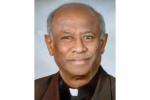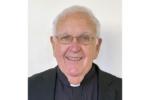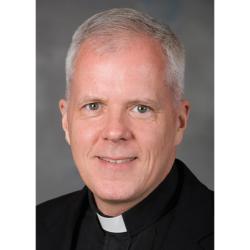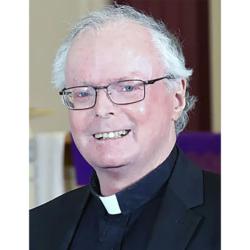Be reflections of God's love, pope tells people of Timor-Leste
TASITOLU, Timor-Leste (CNS) -- While it is tempting to want more money and more power, God works great things through those who know how to make themselves small, Pope Francis told a massive crowd in one of the world's poorest countries.
In a nation of 1.3 million people -- 96% of whom are Catholic -- local authorities estimated 600,000 people gathered for Mass with the pope Sept. 10 at a park in Tasitolu, which is about five miles outside Timor-Leste's capital, Dili. They came from all over Timor-Leste but also from Indonesia.
People sitting near the metal barriers closest to the altar said they arrived at the site at 4 a.m. for the Mass at 4:30 p.m. They huddled under yellow-and-white umbrellas to avoid the worst effects of the intense sun on a cloudless day.
Even Prime Minister Xanana Gusmão and members of his government arrived more than an hour early; while they had seats on a brick-paved platform near the altar, they also had the special papal-visit umbrellas, although they put them down when the Mass began.
Before the Mass, Gusmão introduced Pope Francis to a long line of people who are sick or have disabilities. The pope blessed each one as the prime minister helped them up and/or hurried them along.
The prayers and readings were from the votive Mass for the queenship of Mary, "the mother of a king, Jesus, who chose to be born small and to make himself our brother, entrusting his powerful action to the 'yes' of a poor and innocent young mother," the pope said.
He asked the crowd to think about how the birth of a child is a moment of joy and how "an infant's vulnerability carries with it a message so strong that it touches even the most hardened souls."
Praising the people of Timor-Leste for continuing to have a relatively high birth rate, Pope Francis said it was "a great gift that so many children and young people are present, constantly renewing the freshness, energy, joy and enthusiasm of your people."
With about 65% of the population being under the age of 30, Timor-Leste is "a young country and we can see every corner of your land teeming with life," he said.
If every baby brings joy, the pope said, how much more should people marvel at the fact that in Christ, God himself became human "to draw close to us and save us."
The response to that gift, he said, should be to open oneself to God "so that he may heal our wounds, reconcile our differences and reorder our lives to create a new foundation for every aspect of our personal and communal life."
"Let us not be afraid to make ourselves small before God, and before each other, to lose our lives, to give up our time, to revise our schedules, giving up something to help a brother or sister become better and happier," the pope told them.
With dozens of Indigenous people present and wearing traditional dress, Pope Francis told the people that two traditional East Timorese symbols also speak of the "strength and tenderness of a father and mother."
The "Kaibauk," which represents a water buffalo's horns and is worn as a headdress, "speaks of strength, energy and warmth, and can represent the life-giving power of God," the pope said, while the "Belak," which represents the moon and is worn as a necklace, "speaks of peace, fertility and sweetness, and symbolizes the tenderness of a mother, who by her delicate loving gestures makes whatever she touches glow with the same light she receives from God."
Pope Francis asked people to pray at the liturgy that "we may reflect in the world the strong and tender light of God's love, of that God."


















